Harlequin’s Gardens specializes in cold hardy roses on their own rootstock. We generally have nearly 200 varieties in stock which we have selected to be the most successful, best adapted rose varieties for Colorado. And we continue to test new and old varieties in our trial gardens. We only carry a few hybrid tea and floribunda roses, because they are generally lacking in cold-hardiness and disease-resistance. All of our roses are grown on their own roots, which means they are not grafted. There are many advantages to own root roses:
- More cold tolerant
- Stronger and more floriferous
- Far less prone to virus infections
- If they should die to the ground in a harsh winter, they will come up from the roots true to variety
- Longer lived.
Over 45 varieties of these roses are demonstrated at the Boulder-Dushanbe Teahouse and another 75 varieties have recently been planted at Harlequin’s Gardens. In addition to these excellent roses, we have an educated staff that will help you to choose the right roses for your particular locations.

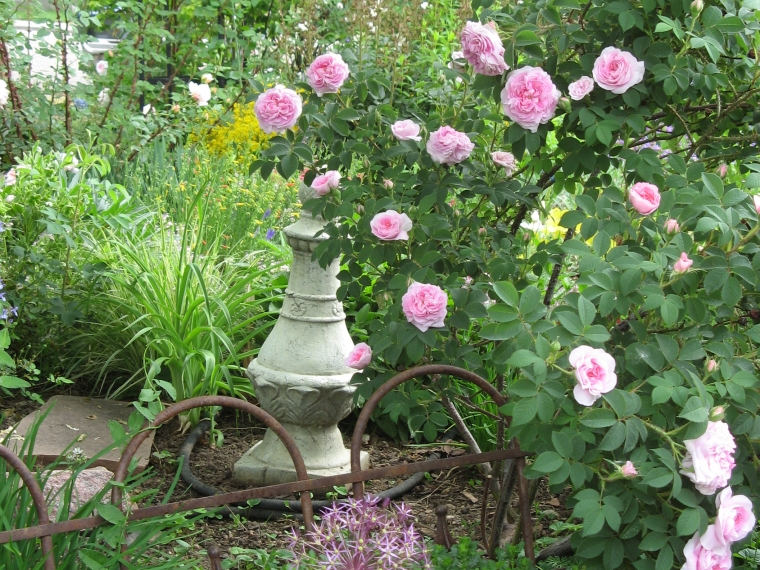



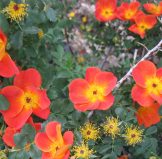
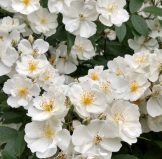
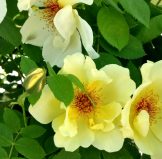
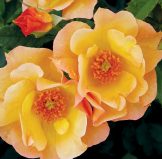
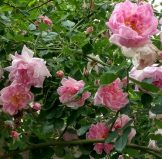
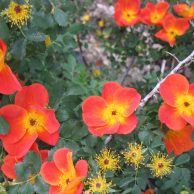 Did your roses take a hit from the winter cold and strong winds we just experienced? Perhaps they look as though they didn’t make it, showing brown, shriveled canes and no new growth above the ground. Or maybe there are no signs of life on the canes, but there is new growth just coming up from the ground. Either way, if your roses are growing on their own roots, you’re in luck. If they were grafted onto a rootstock, the prospects are not so good.
Did your roses take a hit from the winter cold and strong winds we just experienced? Perhaps they look as though they didn’t make it, showing brown, shriveled canes and no new growth above the ground. Or maybe there are no signs of life on the canes, but there is new growth just coming up from the ground. Either way, if your roses are growing on their own roots, you’re in luck. If they were grafted onto a rootstock, the prospects are not so good.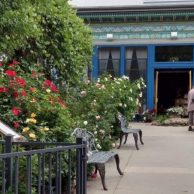 We would like to invite you to visit the Boulder-Dushanbe Teahouse Rose Garden in downtown Boulder across from the city park. The unique treasure of an intricately handcrafted, traditional Tajik Teahouse was gifted to the city of Boulder by the citizens of Dushanbe, Tajikistan, one of Boulder’s Sister Cities, in 1988. In time, the design of the structure was amended to be able to house a restaurant business, construction was completed, and the Teahouse opened in spring of 1998. Both the inside and outside of this fabulous building are elaborately adorned with colorful carved, painted and sculpted elements, mostly traditional, plus some contemporary artistry.
We would like to invite you to visit the Boulder-Dushanbe Teahouse Rose Garden in downtown Boulder across from the city park. The unique treasure of an intricately handcrafted, traditional Tajik Teahouse was gifted to the city of Boulder by the citizens of Dushanbe, Tajikistan, one of Boulder’s Sister Cities, in 1988. In time, the design of the structure was amended to be able to house a restaurant business, construction was completed, and the Teahouse opened in spring of 1998. Both the inside and outside of this fabulous building are elaborately adorned with colorful carved, painted and sculpted elements, mostly traditional, plus some contemporary artistry. 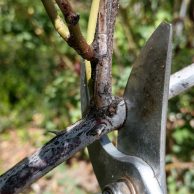 We recently passed Boulder Valley’s “average last frost” date (May 9).With all this rain, it sure feels like Spring! Lots of gardeners are asking if it’s safe to prune now, especially roses and shrubs. The answer is YES! But…..
We recently passed Boulder Valley’s “average last frost” date (May 9).With all this rain, it sure feels like Spring! Lots of gardeners are asking if it’s safe to prune now, especially roses and shrubs. The answer is YES! But…..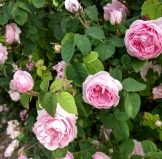



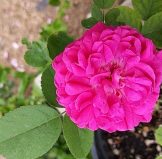

 Boulder Valley Rose Society
Boulder Valley Rose Society